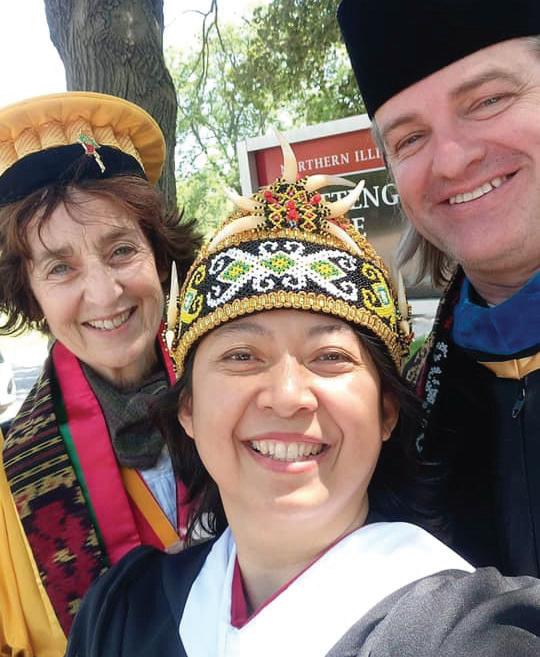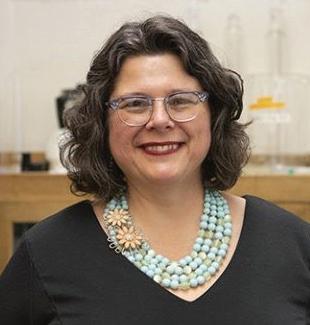
4 minute read
Horizons
The legacy of a road less traveled
By Jeff Rutherford
A man in my hometown of Rockford, IL, was surprised recently when I told him I had studied Thai at NIU. And his wonder increased when I told him I also had studied Burmese, and played a semester in an “Indonesian xylophone orchestra,” and took classes in Southeast Asian politics. “DeKalb?” he laughed. I remember thinking the same thing in Taipei in 1998, when I stopped having to look elsewhere for grad school and settled on NIU. The logic was implacable: one of the first established Southeast Asian studies centers in the country; three professors of Thai politics; six or seven regional languages; the country’s only Burmese study center; a couple hundred Thai students; and people from and interested in Southeast Asia from around the world. And all this just down the way from family and Rockford, where I hadn’t really lived since high school. I did my master’s in political science at NIU from 1999 to 2001 after having lived most of a decade in California, Thailand, and Taiwan. My daughter is now a second-year student and a Foreign Language and Area Studies fellow at the Center for Southeast Asian Studies. She was born soon after we left DeKalb for Chiang Mai, a treasure of a place undergoing tremendous change. For 16 years I was a sort of free agent: teachertrainer-researcher-writer-facilitator(small) project manager-fixer-guidefarmer—a “consultant”—in northern Thailand and neighboring countries. Then I decided I was really best off teaching kids. I’m now in a Rockford middle school teaching social studies and science. All along the way, that couple years in DeKalb proved a big and diverse help, and I expect that to continue. Some kids love to see their names in Thai or Burmese or Khmer on the smartboard.
When I met Thai instructor John Hartmann in 1999, I could read a menu in Thai. I could scratch out some “cute” script. A couple of years later, I was reading forestry master plans, topographical maps, pipeline impact assessments, press releases, karaoke lyrics, and way too many NGO reports— whatever I needed to read in 15-plus years living and working in Thailand. I’m glad I met Ajarn John. When I met Burmese language professor U Saw Tun, I’d been to Burma once and fallen in love with it. After I left his instruction and moved back to Thailand, I visited and worked in Burma/Myanmar dozens of times and made many friends. I never got good enough to teach or work without a translator, but decent street fluency and literacy were invaluable to know something of that great and troubled land. I was lucky to know Saya Saw Tun. John was renowned in his field, doing hugely interesting work with GIS (Global Information Systems) on the Tai languages of China and historical migration into Southeast Asia. He was surely respected by his many students but like so many CSEAS treasures, he was hidden in plain sight in the prairie. U Saw Tun I discovered later to be a cherubic giant in Burmese language. I dropped his name every chance I could in Yangon or Mandalay. I’ve always loved languages, but I came to NIU to study political science. I left having studied radical global political ecology with a concentration on Southeast Asia. That’s my take on it, anyway: what I wanted, what I got. We can’t blame the radical part on the professors. Their value was in the challenge, the context, the resource. Political Science professors Dwight King and Clark Neher were open but critical ears. I’ve got a kind of vetting board in my head that I turn to in need. On that board is Dr. King, dead-panning “Yeah, and you can make that point in a sentence. How are you going to prove it?’ Formally, my M.A. was Poli Sci-International Relations. But almost every paper I wrote was the political ecology of this-that-whatever. And life was like that for a while: teaching college kids the political ecology of forestry in the hills of Mae Hong Son. Training environmental journalists on the Irrawaddy and the Mekong. Growing organic rice and ducks. My NIU time was tied to it all.
What I needed and didn’t always know I wanted, I also got, from the foundational macro stuff that Dwight King and Eliot Kang had me read, and the area knowledge from Clark Neher, Ladd Thomas, and Danny Unger. Not to mention the time and talk with my dear polyglot cohort of students. And I suppose it was peculiar to the Center for Southeast Asian Studies, but I found it remarkable how much of what I learned came from outside the classroom – in living rooms, walking on campus, my wife’s dinner parties, brown bags, and just bumping into people. U Saw Tun’s Friday night curry klatch was my favorite. I lugged classics from Dr. Neher’s reading lists across the world and from home to home before I gave up trying to collect things, and his books found their own good home. I’d like to think that’ll be true of all the gifts I was given by a good couple of years as a student with the NIU Center for Southeast Asia Studies.
Two generations of FLAS fellows: alum Jeff Rutherford and his daughter Anne, currently a student studying Thai at NIU.
Thomas “Jeff” Rutherford (M.A. political science, 2001) teaches social science at RESA Middle School.








